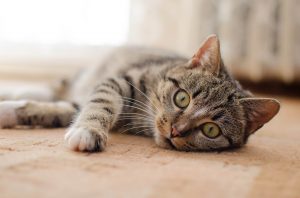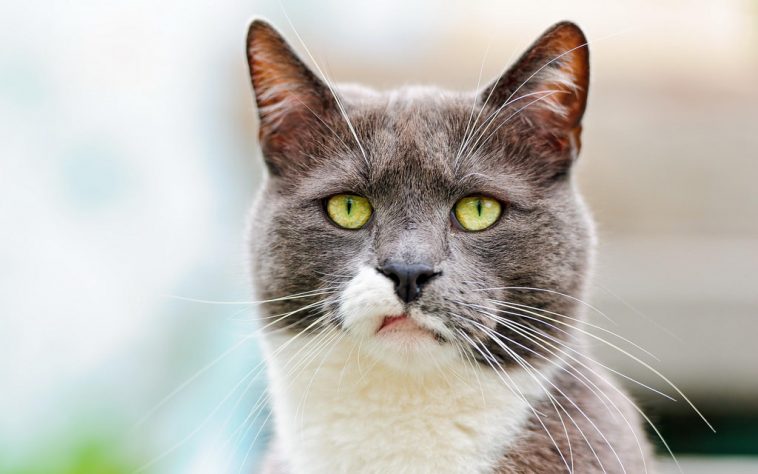Often owners will ask themselves if it is possible that cats can be bipolar. Behavioural disorders in some cats are sometimes very virulent. One can then wonder if felines do not suffer from bipolarity as it is a human term. Before diagnosis, you must first know the difference between a real pathology and simple behavioural disorders.
Cats are fascinating and independent creatures. This can cause a lot of questions when their behaviour is sometimes difficult to understand. Many accessories such as
pheromone-based diffusers are effective for calming cats on heat. Behavioural disorders or issues does not mean that the cats can be bipolar all the time. However if you have a doubt about your cat, the best solution is to go to an animal behaviourist. He will analyse the situation and help you find appropriate solutions.

Cats can be bipolar… Is this true?
Bipolarity as we know it is defined by radical and sudden changes in behavior. In cats, the term used by specialists is a condition called Dysthymia. It causes sudden changes in mood in animals. It seems that this type of bipolar disorder is more common in certain breeds of cats like the Abyssinians for example. However, this remains rare. There is a genetic explanation for bipolar disorder in cats, but hormonal causes are also possible. Most often these behavioural disorders are the sign of unipolar Dysthymia. We can note in cats with this condition of hyper-activity and high sensitivity to the slightest stimulation phases. The cat may appear uneasy and act aggressively.
In this case, consulting a behaviorist will be a wise decision even if it is not bipolarity but behavioral problems related to certain particular factors like a move or some change in the existence of your animal. Bad behaviour in cats can occur in any situation and does not necessarily mean that it suffers from bipolarity. So try not to panic over the slightest sign of aggression or change of mood in your companion. Only start to worry if you notice that your cat is very aggressive and this for no reason and regularly. It is always better to consult a veterinarian specialized in behavior. Indeed, a bipolar cat requires a lot of attention and patience and will have to follow an adequate treatment in the same way as humans do.
How to recognise when cats can be bipolar?

Cats can appear fixated on something and then lash out unexpectedly.
A bipolar cat will present the same disorders as in unipolar Dysthymia but with additional and more significant symptoms. In addition to restless and hyper-active behaviour, the cat may also present phases of loss-making behaviour. By this we mean tendencies to remain prostrate and not to eat for example. The more violent and sudden the behaviour disorders are, the more urgent it is to consult a specialist. If for example your cat has phases of long gaze fixation, followed by aggressive behaviour. This can be an alarm sign. A cat with bipolarity will often
meow more than reason.

Cats can remain prostrate for a period of time
Be careful, however, not to over react, and to misinterpret certain situations. Especially during changes in the life of your cat, if it has been hospitalized for example, or if it has not been sterilized, it may have unusual characteristics that will disappear as soon as it has found his marks and habits. You must take aggressive behaviour seriously. If the situation persists or your cat becomes too aggressive/shows signs of depression, it’s necessary to consult a veterinarian. If only as a precaution it is better to make an appointment with a behavioural veterinarian. The vet will assess the situation in order to know what is happening and find appropriate solutions.
What behaviour to adopt if my cat is bipolar?
Once a professional diagnoses your cat there are ways to improve your companion’s life in the home. First, be aware that you can treat bipolar cats with medications to make them calmer and less anxious. This is obviously not a miracle solution and the cat may need constant treatment throughout his life. Medication is very important, so there are some things that can help you this time.
You must take a serene and attentive attitude to the different phases through which your cat will pass. Thus, by observing it you will more easily decode moods and can anticipate possible behavioral problems. If your cat is bipolar, you must strive to be all the more gentle. Talk to him quietly and know how to leave him alone when he is a little more aggressive. Living with a bipolar cat is not easy and the idea itself may be hard to accept. Never lose sight of the affection you have for him. And know that despite the sometimes fluctuating moods of your animal he loves you too.
If you are interested in reading more about the behavioural changes that cats experience then click
here.




